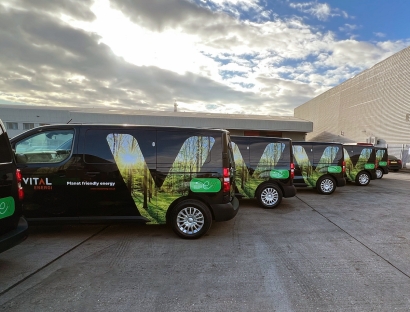
"We are developing science-based targets to achieve these goals, and have committed to set company-wide carbon reduction initiatives in line with the international Science Based Targets initiative (SBTi) Net-Zero Standard and Business Ambition for 1.5°C.
"As well as helping clients across the UK transition to a low carbon future, we’re taking responsibility ourselves too. Our commitment to developing science-based carbon reduction targets demonstrates the measurable actions we are taking to reduce our environmental impact," the company said in a press release.
As part of its carbon reduction plan, the company is currently implementing a number of steps to accelerate the journey to net zero, including:
· Replacing lights across its offices with LED fittings.
· Converting vehicle fleet to EVs
· Developing more environmentally conscious means for travel to work and site visits, such as car-pooling, public transport, and promoting digital and remote means of operating where possible.
· Reduced reliance upon fossil fuels for construction sites through exploring more temporary electricity supplies, electrically power plant and/or biofuel blend of fuel for construction site generators, and mobile machinery.
· Site welfare facilities and accommodation powered and heated by renewable energy.
Vital Energi’s Sustainability Director, Craig Anderson, said,“By making a bold commitment to achieve net zero well ahead of the 2050 target, we are demonstrating our ongoing commitment to responsible and sustainable operations. As an industry leader in sustainable energy solutions we recognise that it is important to set ambitious science-based targets to demonstrate to our clients and peers that not only is this the right thing to do but that it is practically and commercially possible.”
The next step for Vital is to further develop science-based targets and become validated by the SBTi.
Over 2,000 businesses around the world are working with the SBTi, which provides a clearly defined pathway for companies to reduce greenhouse gas emissions, helping prevent the worst impacts of climate change and future-proof business growth.
Targets are considered ‘science-based’ if they are in line with what the latest climate science deems necessary to meet the goals of the Paris Agreement, an international treaty on climate change, limiting global warming to well-below 2°C above pre-industrial levels and pursuing efforts to limit warming to 1.5°C

